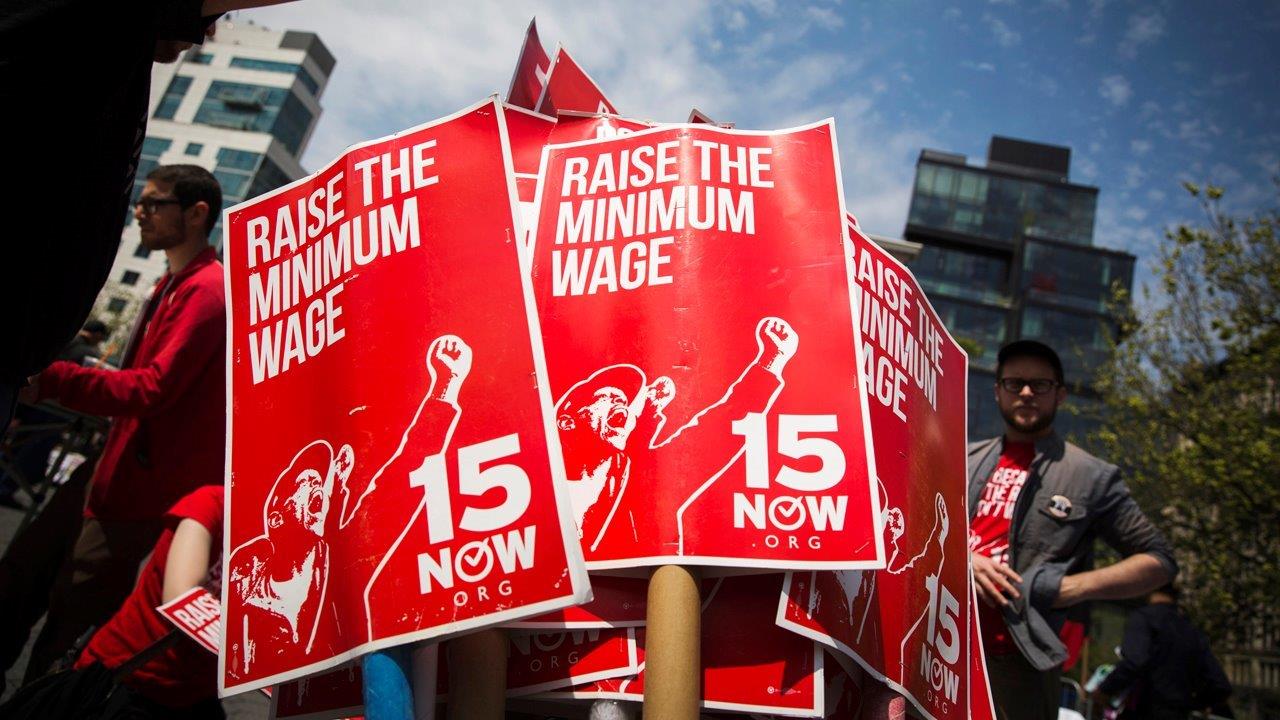The pitfalls of higher minimum wage
Minimum wage increases will take effect in a number of cities and states across the U.S. on July 1st, but a new study found that the minimum wage increase in Seattle was leaving wallets lighter and creating layoffs.
According to the University of Washington, the Seattle minimum wage hike resulted in a 9% decrease in work hours and an average $125 cut to monthly paychecks.
“What Seattle was betting is that they could raise the minimum wage and sort of techies and tourists there would pay for it but what we are seeing now from the study is that hasn’t been the case," said Employment Policies Institute managing director Michael Saltsman in an interview with FOX Business. Employers have had to find other way to offset the cost."
Currently a number of cities are at the height of summer jobs season but with the youth unemployment rate in some markets still above 25 or 30%, this trend could potentially hit these cities Saltsman said.
“The kind of jobs that we are talking about here aren’t just for paychecks, it’s the kind of jobs that do give people those skills that sort of help them get the next job,†he said. “I think if they miss out on that then they are more likely to be unemployed later in life and also more likely to get into some of the issues like… crime and other kind of less productive ways to spend their time.â€
Advocates have pushed the need for a more "livable wage" but economists have found that between the Clinton and Bush years, when the minimum wage wasn’t raised, many employees earned a raise on their own he said.
“I think they key is that making sure that you don’t raise the minimum wage so high that those stepping stone opportunities people have no longer exist that they are automated or...eliminated as employers look for ways to cut back,†he said.




















